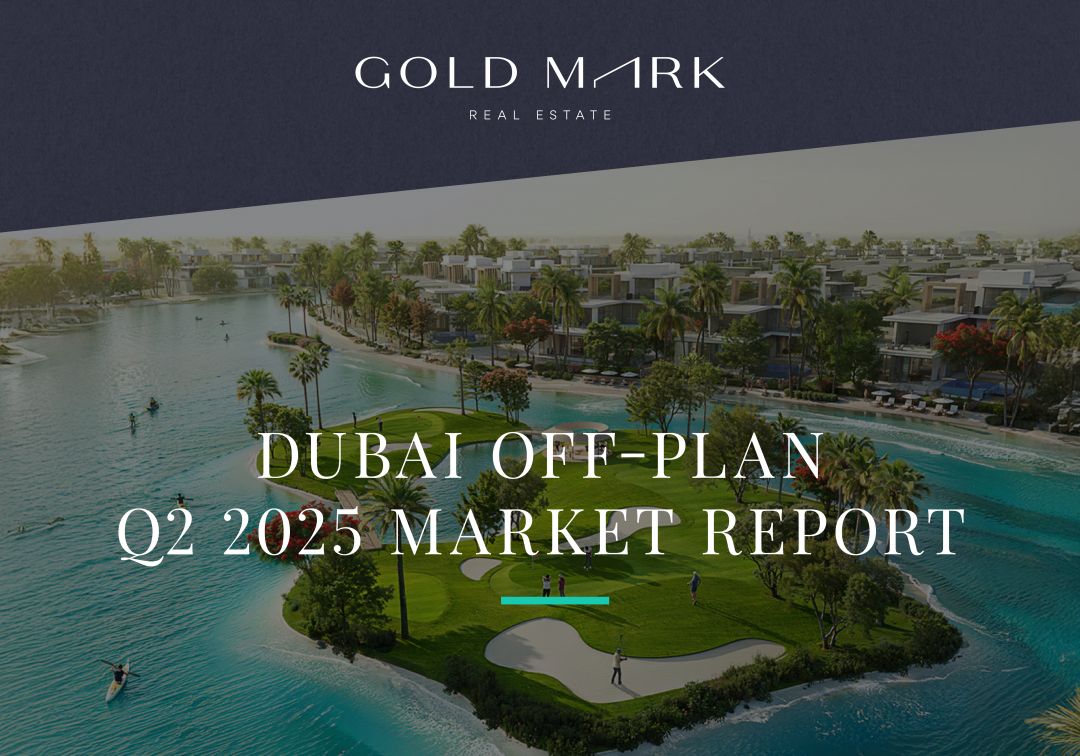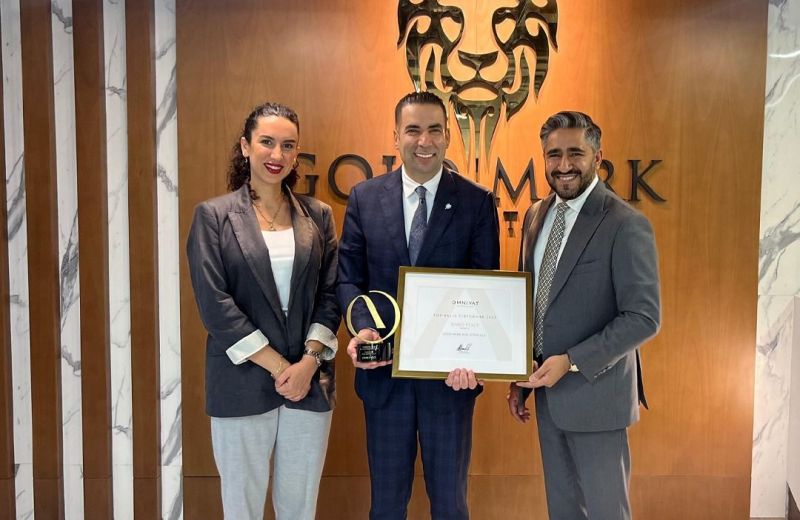Back to Media room
Article 90
The Dubai Property Playbook: An Investor's Guide to the H1 2025 Boom
Dubai’s real estate market showed exceptional momentum in the first half of 2025, with the total value of transactions soaring by 25% year-on-year to reach AED 431 billion. The market attracted 59,075 new investors in this period alone, highlighting significant opportunities for both new and experienced buyers.
Whether you're new to the market or a seasoned investor, this guide will help you navigate Dubai's dynamic real estate landscape and make solid, informed decisions.
Step 1: Define Your Investment Goals
Before you begin, clarify your primary objective. Are you seeking:
- Rental Income: A steady cash flow from long-term tenants. This might lead you to areas with high rental demand and yields.
- Capital Appreciation: Buying a property with the expectation that its value will increase over time, allowing you to sell for a profit.
- A Primary Residence: A place to live that also serves as a long-term asset. This is a growing trend, with residents accounting for 45% of new investors in H1 2025.
Step 2: Understand the Current Market Hotspots
Data from H1 2025 shows where investment is flowing. Use this to your advantage:
- Areas with High Transaction Volume: These locations are buzzing with activity, suggesting high demand and liquidity.
- Al Barsha South Fourth (10,469 transactions)
- Al Yalayis 1 (7,595 transactions)
- Wadi Al Safa 5 (7,178 transactions)
- Other active areas include Business Bay, Dubai Marina, and Jebel Ali First.
- Areas with High Investment Value: These prime locations are attracting the biggest investments, indicating a concentration of luxury and high-end properties.
- Dubai Marina (AED25.1 billion)
- Business Bay (AED22.5 billion)
- Burj Khalifa (AED17.1 billion)
- Palm Jumeirah (AED16.96 billion)
Read more : Off-Plan Property Market Sees Remarkable Growth in Q2 2025
Step 3: Your Financial Plan & The First-Time Home Buyer Programme
Proper financial planning is crucial. For new buyers, a new government initiative launched in July 2025 provides significant advantages.
- For First-Time Buyers: The Dubai Land Department (DLD) has launched the "First-Time Home Buyer Programme" to make ownership more accessible.
- Eligibility: You must be a UAE resident (any nationality), 18 or older, and not currently own any freehold residential property in Dubai. The property value must be under AED 5 million.
- Key Benefits: The programme offers priority access to new property launches, preferential prices from participating developers, and improved home financing options from major banks. It also allows for flexible payment plans for DLD registration fees.
- To learn more about First-time Home Buyer Programme kindly follow this: link.
- General Financial Planning:
- Determine Your Budget: Factor in your down payment and capacity for a mortgage.
- Get Mortgage Pre-Approval: Approach a bank to get pre-approved. This clarifies your budget and strengthens your position as a buyer.
- Account for All Fees: Remember to budget for additional costs, including DLD fees (typically 4%), agent commission, mortgage registration fees, and annual service charges.
Step 4: The Buying Process
- Engage a RERA-Certified Agent: A professional agent can provide access to listings and guide you through the legal process.
- Sign the Memorandum of Understanding (MOU): This document (Form F) outlines the sale terms. A security deposit is typically paid at this stage.
- Obtain the NOC: The seller must get a No Objection Certificate from the developer, confirming no outstanding service charges.
- Complete the Transfer: Meet at a DLD-approved Trustee Office to formally transfer ownership and pay the balance. You will then receive the new title deed.
- For Resale Properties: Verify the title deed and check for any outstanding service charges or mortgages.
- For Off-Plan Properties: Research the developer's reputation and ensure the project is registered with RERA and has a secure Escrow account for your payments.
If you're looking for a new home, an investment property, or a rental opportunity, let our expert team at Gold Mark Real Estate help you navigate the next steps.
Frequently Asked Questions
Q1: What are DLD and RERA? A: DLD stands for the Dubai Land Department, the government entity that handles all real estate registrations and regulations in Dubai. RERA (the Real Estate Regulatory Agency) is the regulatory arm of the DLD. It sets policies and licenses all real estate agents, who must be "RERA-Certified."
Q2: What is the difference between an 'Off-Plan' and a 'Resale' property? A: A Resale property is an existing property being sold by its current owner. An Off-Plan property is one that is sold directly by a developer before it has been constructed. The guide recommends different due diligence steps for each.
Q3: What exactly is a 'Title Deed'? A: A Title Deed is the official and legal document issued by the Dubai Land Department that proves ownership of a property. Receiving the title deed in your name is the final step of the buying process.
Q4: What is an MOU (Form F)? A: The Memorandum of Understanding (MOU), officially known as 'Form F' in Dubai, is the initial contract between the buyer and seller. It outlines all the terms and conditions of the sale and is a legally binding agreement once signed.
Q5: What are 'Service Charges'? A: Service charges are recurring annual fees that homeowners must pay to the developer or building management for the maintenance and upkeep of common areas in a community. This includes landscaping, security, swimming pools, gyms, and general cleaning. It's important to factor these into your yearly budget.
Q5: What is the real estate escrow account? What is its purpose? To whom does the law apply?
The real estate escrow account is a bank account of a real estate project in which the amounts collected from purchasers for the units sold off the plan (on the map) or from the financiers of the project are deposited. It aims to regulate the building and construction processes of the units sold on the map guaranteeing investors' rights. The provisions of the law apply to the developers (all real estate developers in Dubai, without exception), who will sell real estates on the map of the projects in the Emirate of Dubai and, in return, receive payments from the purchasers or financiers.
Q4: Where is the final property transfer completed?
A: The final property transfer is completed through one of two official channels authorized by the Dubai Land Department (DLD), depending on the preference of the parties involved:
- Real Estate Registration Trustee Offices (In-Person): This is the traditional method. The buyer, seller, and their agents meet at the office of a DLD-approved Registration Trustee. A trustee employee verifies all documents (like the eNOC and signed contracts), calculates the final fees, processes the payment, and facilitates the transfer. The new title deed is then issued upon completion.
- Dubai REST App (Digital/Remote): This is the modern, fully digital method. The entire transaction can be conducted remotely through the official Dubai REST (Real Estate Self Transaction) application. The parties can initiate the sale, upload documents, make secure online payments for all fees, and sign contracts digitally. Upon successful completion, a digital version of the title deed is issued directly to the new owner through the app.
Another Milestone Achieved!
May 31, 2024
The Distinction between Freehold and Leasehold
Aug 21, 2023
Contact info
- Control Tower, Motor City
- Office 1403, P.O. Box 644919
- +971 4 558 4803
- +971 56 415 0007
Stay connected!
Copyright © 2026 Gold Mark Real Estate LLC. Powered by www.goldmark.app








